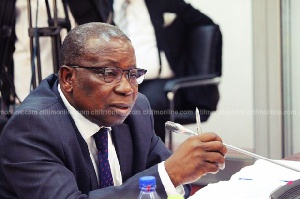The Association of Health Service Administrators, Ghana(AHSAG) has joined the calls for a thorough investigation into the “no bed” syndrome at the hospitals which recently led to the death of a 70-year old man which sparked a national outcry.
The Association called for the investigations to be considered as a national issue to help unravel the mysteries surrounding the syndrome so as to appropriately inform policy and strategy for the building of a robust emergency health system for the country that would respond to individual and collective needs.
This was contained in a press release issued by the Association on Monday and copied to the Ghana News Agency.
The Association recommended that, government and other stakeholders in the health care delivery system should step up efforts in improving health infrastructure and prioritise the supply of more patient beds to existing health facilities.
They said a good number of beds in health facilities currently have broken down beyond repairs while others were obsolete and required replacement.
The Association further urged the Ministry of Health and the Ghana Health Service to jointly establish a policy for all public hospitals to hold a minimum number of beds in other wards beyond emergency wards, for emergency purposes.
The release urged government to operationalise the new health facilities that had been constructed in recent times to take some of the undue pressure on the existing facilities whilst efforts were being made to speed up the completion of other hospitals under construction.
The Association called for government clearance to allow for the engagement of critical health staff, particularly clinical staff and managerial staff, to ensure prompt attention to patients and also enhance adequate supervision.
The Association appealed to government and other stakeholders to expedite the procurement of an ambulance for each constituency as planned, to beef up the strength of the current fleet which was woefully inadequate and called for the establishment of a sustainable means of funding the ambulance service in the country.
The release further recommended the development of a comprehensive and coherent emergency health care communication system and infrastructure that supported a seamless communication interface between individual citizens, health care providers and institutions.
The Association suggested that such a system could start with the development of regional emergency healthcare telephone directories that captured a unique hotline for each region and key emergency health staff in all facilities and ultimately, the directories should be linked to a national call centre manned by persons with the requisite wits and authority to call any errant facility manager and staff to order.
The Association urged all health managers and workers to continue to implement the knowledge and skills acquired at trainings by exhibiting the highest standards of professionalism, creativity and sensitivity in handling clients who come to their facilities for care whether in emergency situations or ordinary cases.
AHSAG recommended that training of health workers should focus more on specialisation particularly in emergency care and called for continuous in-service training at facility levels on emergency preparedness whiles efforts were made by government to equip every public hospital with the requisite modern emergency care equipment to adequately manage emergencies.
The Association said it was ready to effectively contribute to the national discourse in finding permanent solutions to the “no bed” syndrome in the country.
Health News of Tuesday, 26 June 2018
Source: ghananewsagency.org

















